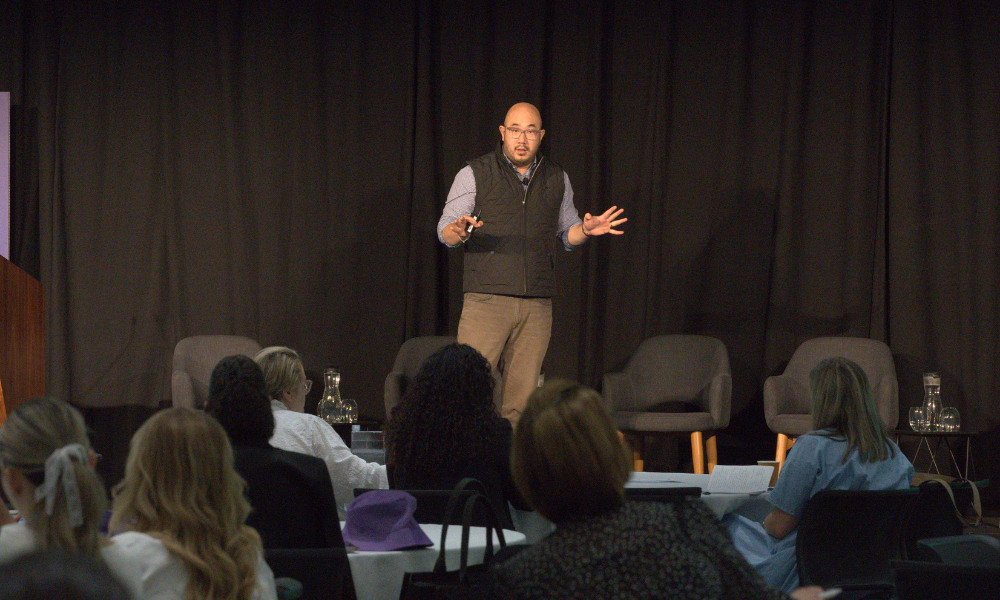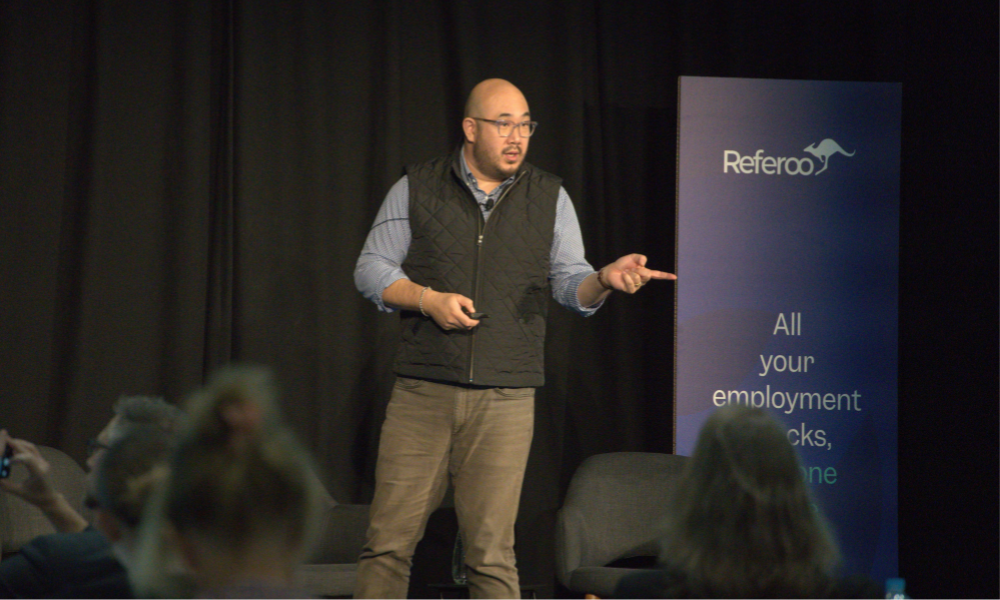
'It boggles my mind that HR leaders are mandating a return to office... this might work for millennials, but it's not going to work for Gen Z'

In today’s fiercely competitive talent market, companies need more than traditional job postings to secure top-tier candidates—they need a transformative strategy.
Michael Kim, Head of HR JAPAC & SAMEA, recently shared how the global streaming giant has reimagined its approach to talent acquisition using innovative tactics.
Speaking at the National HR Summit 2025, Kim underscored the urgency of addressing high global attrition rates.
“Global statistics in 2024 showed an average attrition rate of 20%, which is staggering. At Spotify, we’re between four and six percent—and we’re pleased with that,” he said.
“But too low a rate isn’t ideal either. If no one’s leaving, why aren’t they growing or finding their next journey?”
The cost of attrition can range from 50% to 200% of an employee’s salary to hire a replacement, Kim said, but it’s more than financial: “There’s the loss of motivation, institutional knowledge, and revenue."
The average employee tenure has decreased from 4.5 years in 2022 to 4.2 years in 2024, according to the International Labour Organisation (ILO) – further underscoring the need for retention to become a priority for businesses.
To overcome unwelcome turnover, you need to look at your employee value proposition, he said.
“At Spotify, we’re very people-first. We want to provide the best work experience possible, not because we like to give out candy and everything’s rainbows and unicorns – but because it’s a business decision,” Kim said.
“We want to retain our people because it’s good for business.”

Spotify’s recruitment strategy underwent significant evolution following COVID. Previously in a phase of hyper-growth, the company’s hiring approach was reactionary—focused on rapidly filling roles with external talent.
“We were over-hiring in a booming economy, and it wasn’t sustainable. After the COVID pandemic passed, we had to lay off 17% of our workforce. That was a wake-up call,” Kim admitted. “So, we shifted to an internal-first hiring model. Succession planning became central to our strategy.”
Kim also told the Summit how HR has integrated artificial intelligence to give employees agency to apply for internal roles in the company to fulfill their potential and grow their career – through an internal job marketplace called Echo – and give them a greater purpose at work.
“It democratizes the internal selection process by removing biases and focusing on skills – it’s a tangible example of how you can grow and work in areas you want to work in, not just getting promoted to a role you don’t want and creates supply with demand. Learning and development is the backbone of our philosophy and it’s so important that workers drive their development - not their manager,” he emphasised to HRD.
However, work also needed to be done to address new concerns and priorities brought into the workplace by the increasing presence of Generation Z.
“Gen Z is probably a higher percentage of our workforce because of what we offer at Spotify,” Kim said, “and their motivators are work are very different. It’s about working with them to make them feel wanted and to make sure they’re happier at work. That’s going to keep them in the company.”
A report by Deloitte found that 86% of Gen Zs and 89% of millennials find having a sense of purpose at work as somewhat/very important for job satisfaction and wellbeing.

“This generation prioritises work-life balance, they want flexible work, they want managers they can trust. It boggles my mind that HR leaders are mandating a return to office. If this is your future workforce, this might work for millennials, but it’s not going to work for Gen Z,” Kim noted.
Paying an employee a salary is one thing – but benefits can have a real impact on an employee’s retention.
“We make sure our pay is both fair and equitable – so the discussion of salary may already be off the table when you’re trying to attract talent. We’re very privileged that we’re valued at such a high level – it means we have the scope to do things that not everyone else can,” Kim said.
He told HRD the focus is to ensure they feel wanted and appreciated, which is key to battle attrition. Some of the benefits offered at Spotify are six-month parental leave for both men and women, IVF egg freezing benefits and "a dynamic health and wellbeing strategy also known to Spotify employees as Heart n Soul."
“The other big thing is we don’t do annual bonuses – unless you work in sales. We don’t use it as leverage to get people to perform. You shouldn’t necessarily drive your people by competition to get them to do a great job,” Kim said.